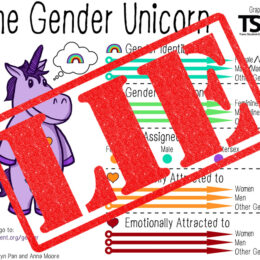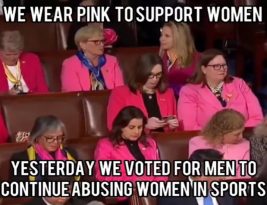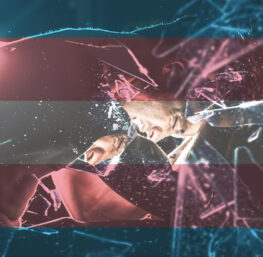American Thinker | by Rick Moran | Nov. 7, 2009
President Obama’s weird, off-putting introduction to his remarks about the Fort Hood massacre reveal him to be something of a cold fish.
Obama’s shocking insensitivity was first noticed by Robert George writing in the president’s home town TV news station WMAQ:
After news broke out of the shooting at the Fort Hood Army post in Texas, the nation watched in horror as the toll of dead and injured climbed. The White House was notified immediately and by late afternoon, word went out that the president would speak about the incident prior to a previously scheduled appearance. At about 5 p.m., cable stations went to the president. The situation called for not only his trademark eloquence, but also grace and perspective.
But instead of a somber chief executive offering reassuring words and expressions of sympathy and compassion, viewers saw a wildly disconnected and inappropriately light president making introductory remarks. At the event, a Tribal Nations Conference hosted by the Department of Interior’s Bureau of Indian affairs, the president thanked various staffers and offered a “shout-out” to “Dr. Joe Medicine Crow — that Congressional Medal of Honor winner.” Three minutes in, the president spoke about the shooting, in measured and appropriate terms. Who is advising him?
While the president’s actual remarks about the tragedy were appropriately solemn and dignified, the introduction was painful to watch.
Here it is. You make up your own mind about how bizarre this is:
Ed Lasky adds:
Is it just me, or does anyone have a problem with a president that reaches out to tyrants of the world, and apologizes for all the sins he believes America has committed to them and their people (before his coronation) yet has nary any sympathy for American soldiers killed by a home-grown terror attack? Does he empathize and sympathize with foreigners who he believes were mistreated by America yet not empathize with our own American soldiers? Did the Teleprompter go on the fritz again?
Obama had a friendly smile for his good friend “Joe Medicine Crow” who he shockingly incorrectly identified as a Medal of Honor winner (Mr. Crow received the Presidential Medal of Freedom from Obama last spring).
Even the Boston Globe found the president’s initial tone disturbing:
Obama’s initial remarks came shortly after 5 p.m. Thursday, while Americans were struggling to come to grips with the shocking rampage and its chaotic aftermath. The stage was set for the president to quickly and somberly address the tragedy. Instead, a serene-looking Obama offered light introductory comments, keyed to those attending a Tribal Nations Conference that was hosted by the Department of Interior’s Bureau of Indian Affairs. His introduction included a convivial “shout-out” to one of the conference attendees.
Several minutes in, Obama finally called the Fort Hood shootings “a horrific outburst of violence.” The words he spoke next were respectful and appropriate. But it took him too long to get to the point of delivering them.
It takes more than scripted eloquence for presidents to connect with their fellow Americans. It requires a visceral ability to grasp the scope of tragedy, calculate its impact on the national psyche, and react swiftly to it. Ronald Reagan did it after the Challenger explosion took the lives of seven crew members on Jan. 28, 1986. So did Bill Clinton, after the Oklahoma City bombings of April 19, 1995, left 168 dead and more than 600 injured.
When a gunman fired those shots at Fort Hood, the country immediately felt the pain. Obama missed the first moment to show he understood just how much it hurt.
The Globe has it right. In addition to all of his other hats, a president has another role; “Mourner in Chief.” When national tragedies occur, the nation expects their president to articulate the grief they are feeling. They expect solemnity, gravity, eloquence, and a reassuring serenity from our chief executive so that we feel united as a nation in our grief.
Obama failed that test miserably. It was almost as if he couldn’t scroll ahead on the teleprompter and get to the remarks he was going to make about Fort Hood immediately. He seemed trapped into making the remarks about the tribal conference because he didn’t realize the importance of the “moment” – that slice of time where whatever a president says or does is magnified by events.
Think of Reagan after the Challenger disaster. His short televised address lifted up an entire nation, inspired us to continue reaching for the stars, while paying tribute in a gut wrenching, emotional way to the fallen astronauts.
The crew of the space shuttle Challenger honored us by the manner in which they lived their lives. We will never forget them, nor the last time we saw them, this morning, as they prepared for their journey and waved goodbye and “slipped the surly bonds of earth” to “touch the face of God.”
At bottom, the speech told us that the president understood our distress, but insisted that the highest honor we could pay the dead is to continue their work. That is leadership.
Obama? Not so much.
. . . more




This editorial from the Washington Times says it all:
Obama has a ‘Pet Goat’ moment
Cool, calm and unconnected
http://www.washingtontimes.com/news/2009/nov/08/obama-has-a-pet-goat-moment/